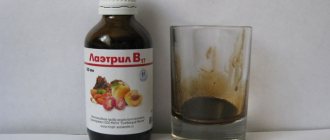Alpha lipoic acid (ALA) is a dietary supplement that has effects similar to vitamins. Unlike them, it is produced in the body. True, in small quantities. It is becoming increasingly popular among athletes and people struggling with excess weight.
An extremely important coenzyme involved in the breakdown of certain amino acids, the formation of high-energy compounds and universal chemical energy - ATP.
In nature, it is found in every cell of all living beings, i.e. Produced in plants and animal cells. It has many beneficial properties and is used in the treatment of certain diseases.
What is alpha lipoic acid used for?
Chemically speaking, alpha lipoic acid is a fat that resembles vitamins. Refers to dietary supplements with universal action and a minimum number of side effects.
It has antioxidant properties, that is, it is a substance that neutralizes free radicals in the body. Helps lower cholesterol, which means it prevents plaque deposits on the walls of blood vessels and the occurrence of atherosclerosis.
Interacts with other antioxidants such as vitamin C and E. But does not replace them. Working together, it restores and enhances their antioxidant abilities.
The issue of solubility is not relevant here. Vitamin C is a water-soluble vitamin and acts in an aquatic environment. Vitamin E is a fat-soluble vitamin that can only work in its environment. ALA is soluble in both water and fat. Therefore, its activity is more effective.
The second important function of alpha lipoic acid is participation in metabolism. It speeds up the burning of energy available in food.
The amount of alpha lipoic acid obtained from foods and produced by the body is sufficient for proper metabolism. However, if you need to enhance the antioxidant effect or lose weight, taking a supplement is necessary.
In addition, not many other processes occurring in the body are affected. For example, the regeneration of liver cells or the production of glycogen in muscles.
The best dietary supplements with thioctic acid
The healing effects of lipoic acid have found use in the form of various dietary supplements. According to reviews, the most popular dietary supplements among doctors and buyers are from premium American pharmaceutical corporations Healthy Origins, Doctor's Best, Life Extension, and Solgar. Supplements are made on the basis of the active right-handed acid isomer, so the medications are very effective. The preparations are made from natural raw materials, so they do not contain preservatives, dyes, toxins or GMO products.
TOP 6 dietary supplements with Lipoic acid:
Doctor's Best, Alpha Lipoic Acid 600, 600 mg, 180 Vegetarian Capsules
★★★★★
2 301 ₽
Buy at a discount
Doctor's Best, Alpha Lipoic Acid, 600 mg, 60 Veggie Caps
★★★★★
1 040 ₽
Buy at a discount
Doctor's Best, Alpha Lipoic Acid, 150 mg, 120 Veggie Caps
★★★★★
753 ₽
Buy at a discount
Life Extension, Super R-Lipoic Acid, 240 mg, 60 Vegetarian Capsules
★★★★☆
2 838 ₽
Buy at a discount
Doctor's Best, Best Stabilized R-Lipoic Acid, 100 mg,…
★★★★★
1 298 ₽
Buy at a discount
Natrol, Alpha Lipoic Acid, Slow Release, 600 mg, 45 Tablets
★★★★☆
926 ₽
Buy at a discount
What is good for the body
Alpha Lipoic Acid is more than just a nutritional supplement. She has:
- Immunomodulatory;
- Antioxidant;
- Anti-inflammatory;
- Hypoglycemic
properties.
The first of these properties are used in the treatment of asthma and multiple sclerosis. Due to its antioxidant and hypoglycemic properties, it is used to treat type 2 diabetes. Improves the functioning of the endothelium of blood vessels.
In addition, it significantly improves lipid profile results because it reduces total cholesterol levels. During administration, the level of LDL cholesterol in the body decreases, and the HDL fraction increases.
Scientists are considering the possibility of using it as a supplement in the fight against diseases of civilization. Such as atherosclerosis or heart disease.
Alpha lipoic acid reduces the amount of hunger hormone leptin.
As a strong antioxidant, it is considered a natural remedy for diabetic neuropathy. Improves the regeneration of nerve tissue, thereby reducing pain.
But this is not the only beneficial property for diabetics. It can lower sugar levels and maintain optimal blood glucose levels. Helps the body convert it into useful energy.
It also prevents the abnormal attachment of sugar to proteins, improves insulin sensitivity, reduces the accumulation of fat in vital organs and protects pancreatic cells from destruction.
Antioxidant and anti-inflammatory properties prevent abnormal cell growth and reproduction. Capable of inhibiting an enzyme that allows cancer cells to penetrate healthy tissue. Initiates the death of cancer cells, thereby preventing the growth of metastases.
Having the ability to cross the blood-brain barrier, it protects brain cells from oxidative stress. Promotes the regeneration of nervous tissue in the brain, thereby reducing the risk of stroke, dementia and other age-related diseases.
There are suggestions that it exhibits its best qualities when combined with acetyl-carnitine.
Indications for taking lipoic acid
- Patients with liver diseases. First of all, the acid is indicated for use by people with impaired liver function. A lack of vitamin N is an indicator that the liver is not functioning properly. A diseased liver causes many problems for the body, since this internal organ filters everything that enters our body from the outside. All harmful substances settle in the liver, so it must be protected and cleansed. The cleansing function is performed by alpha lipoic acid.
- For older people. With age, the ability of cells to produce active substances weakens. The immune system begins to weaken and the body is unable to fight oxidative processes and infections. Consuming foods with lipoic acid activates the immune response and helps clear the blood of harmful compounds. Consuming refined and specially processed foods does not provide adequate amounts of important compounds. Without receiving the necessary elements, the body is unable to promptly remove toxins and counteract oxidation. There are natural supplements that are designed to add lipoic acid to your diet. It is believed that the body absorbs omega acids better on an empty stomach. Thioctic acid has strong antioxidant properties. The product promotes the absorption of vitamin C and stimulates the immune response. The acid binds harmful metal ions such as copper, iron and mercury for further removal from the body.
- For weakness and loss of strength. Beneficial compounds are involved in the production of cellular energy, act as active antioxidants, support liver health, activate intelligence, improve memory, normalize sugar, help reduce weight, strengthen muscles and prevent heart disease.
- Antioxidants are stable molecules. They block the action of unstable molecules - free radicals. Beneficial compounds prevent tissue damage from oxidative stress. Vitamin E is also an effective antioxidant.
- Thioctic acid supports hormone production and thyroid function . The gland, located at the front of the throat, produces hormones that regulate metabolism, cell growth and puberty. To regulate the production of thyroid hormones, formulations containing quercetin, resveratrol and lipoic acid are used.
- The central and peripheral nervous system begins to malfunction with age. Disturbance in the activity of peripheral nerve cells causes numbness and tingling in the arms and legs. Coordination of movements and the ability to perform complex operations are impaired. The progression of the disease leads to serious consequences. Organic acid can normalize the state of the nervous system and remove the effects of oxidative stress.
- Antioxidants support the condition of the endothelium - the cells lining the inner walls of blood vessels. Lipoic acid restores cells and improves blood flow in the arteries. The active substances have cardioprotective capabilities, strengthen blood vessels and prevent heart attack. Significant physical activity improves health, but at the same time activates oxidative processes in tissues. Oxidative stress is accompanied by muscle pain and prolonged recovery. Vitamin N stimulates antioxidant activity, reduces lipid oxidation and prevents cell damage.
- For disturbances in brain activity. Antioxidants activate intellectual capabilities and improve memory. This is especially important in adulthood, when the immune system weakens and metabolism slows down. Consuming lipoic acid increases alertness and promotes efficient mental performance.
- Stress, toxic damage, poor diet, genetics and metabolic disorders can trigger the appearance of acne and skin inflammation. Lipoic acid, in combination with probiotic substances, helps relieve irritation, relieve itching, smooth out wrinkles, lighten age spots and rejuvenate the skin. Consuming foods with antioxidants prevents premature aging.
- For diabetes mellitus. The acid regulates blood glucose and maintains insulin sensitivity. Diabetic patients should control their blood sugar.
- For intestinal problems. The product stimulates digestion, improves liver function, activates the breakdown of fats and helps maintain normal weight.
Benefits for the body
Research has shown that thanks to its unique abilities it can:
- Prevent myocardial infarction and DNA damage;
- Accelerate recovery and regeneration of the heart muscle after a heart attack;
- Stabilize the functioning of the heart;
- Protect against diseases of the circulatory system;
- Regulate blood sugar levels;
- Reduce the frequency and severity of neuropathy;
- Reduce skin sensitivity, numbness;
- Improve energy production;
- Help reduce excess weight;
- Prevent obesity;
- Reduce pain in people with chronic liver diseases;
- Strengthen the effect of creatine;
- Reduce high blood pressure;
- Protect against free radicals;
- Support the functioning of the endocrine system;
- Improve memory and concentration;
- Slow down the aging process;
- Improve overall performance.
Used to treat:
- Diabetes;
- Atherosclerosis;
- Liver diseases.
There is partially proven effectiveness in:
- Coronary artery bypass surgery together with Q10, magnesium, omega-3, selenium;
- Prediabetes;
- Diabetic neuropathy;
- Vitiligo;
- Healing of burns;
- Weight loss.
There are suggestions that it can be used for treatment:
- Alcoholic liver disease;
- Diseases of fear of heights;
- Alzheimer's disease;
- Autonomic cardiac neuropathy;
- Diabetic retinopathy;
- Brain problems associated with HIV;
- Rheumatoid arthritis.
Causes and symptoms of deficiency
There are only two reasons for the shortage:
- Low level of production in the body;
- Nutrition: lack of vegetables, fruits, and other foods high in lipoic acid in the diet.
Manifests:
- Weakness;
- Drowsiness;
- Fatigue;
- Increased blood sugar levels;
- Pain in the arms and legs along the nerves;
- Impaired skin sensitivity (numbness, “goosebumps”);
- Weight gain;
- Tendency to inflammatory diseases of muscles and joints, ligaments;
- Slowing down the regeneration of liver cells during liver disease.
May cause visual impairment in diabetic patients.
Which alpha lipoic acid is best?
Alpha lipoic acid is a naturally occurring sulfur-containing organic acid. Synonyms: thioctic acid, lipoic acid, octolipene. It may be sold under the name “Vitamin N”.
Available in three forms:
- Tablets;
- Capsules;
- Injections.
Dietary supplements are usually produced in the form of tablets or capsules. In injections it is used as a medicine.
It is found commercially in two forms: the more active R and the less active S. There are preparations on the market containing a mixture of these two types of ALA, as well as preparations containing only the type R or S. The former are, of course, more effective.
Vitamin N is a less active form. The percentage of its absorption does not exceed 30-40 percent.
Accordingly, the price depends on the form of release. The active form is more expensive. But the dosage is also lower compared to a less active one. When purchasing, be sure to pay attention to this information.
The alpha lipoic supplement may contain other substances, such as vitamins, herbal extracts, etc.
general information
Other names for alpha lipoic acid are thioctic acid, vitamin N. On nutritional supplement packaging, the substance is often designated by the Latin letters ALA (an abbreviation for alpha lipoic acid). It is important not to confuse the compound with alpha-linolenic acid, which has the same abbreviation, but denotes a completely different molecule from the Omega unsaturated group.
Lester Reed
The history of studying the active compound began back in 1937, when American chemists, while studying the type of nutrition of microorganisms, discovered that their increased reproduction was observed when potato extract was added to the nutrient medium. They called this unknown enzyme potato growth factor. Fourteen years later, Lester Reed began studying the chemical properties of the active compound and isolated a pure vitamin molecule, which he called lipoic acid (the name comes from the Greek word lipos, “fat”). During a detailed analysis of the composition of the vitamin-like compound, sulfur was discovered in it, which allowed biochemists to give another name - thioctic acid (derived from the Greek name for sulfur). In the 80s, interest in this acid was renewed; scientists discovered a unique ability to neutralize free radicals. Since that time, the substance has been actively used in medicine.
Healthy Origins, Alpha Lipoic Acid, 600 mg, 150 Capsules
1 731 ₽
Buy at a discount
What does the prefix "alpha" mean?
The Latin letter "alpha" preceding the chemical name of a compound indicates the position of the carboxyl group (-COOH-) in the compound molecule.
The names used in the literature - lipoic and alpha-lipoic - are synonyms and imply the same substance.
Contraindications and side effects
Alpha lipoic acid is a safe remedy. However, as with any other supplement or medication, it can cause side effects if taken in too large quantities. Mainly gastrointestinal:
- Diarrhea;
- Stomach ache;
- Skin allergies.
If adverse symptoms occur, reduce dose or discontinue use.
It is not recommended for pregnant or breastfeeding women to take the supplement. This is due to the lack of research on the effect of ALA on a woman’s body during such a period.
May greatly reduce blood sugar levels in people with diabetes. Therefore, your doctor may need to adjust your dose. In addition, they must constantly monitor their sugar levels.
Alcohol can reduce the amount of thiamine (vitamin B1) in the body. Using the supplement if you have a thiamine deficiency can cause serious health problems. Therefore, if you drink excessive alcohol and take ALA, you may need to take additional vitamin B1.
Supplements with this acid may affect the treatment of hyperthyroidism and hypothyroidism.
Instructions for use
Dosage recommendations vary depending on the intended use. The following are general guidelines that are within the safe range:
- 50–100 mg/day for antioxidant purposes in healthy adults.
- 600–800 mg/day for patients with diabetes (divided into two doses).
- 600–1800 mg/day for patients with diabetic neuropathy (such high doses should only be taken under medical supervision).
- 600-1200 mg/day for weight loss.
Some of the best food sources of alpha lipoic acid are: broccoli, spinach, red meat, organ meats (beef or chicken liver, hearts, kidneys), Brussels sprouts, tomatoes, peas, brewer's yeast, beets, carrots.
Interactions with drugs
Alpha lipoic acid is an antioxidant. There is some risk that antioxidants may reduce the effectiveness of some cancer drugs. Taking the supplement while undergoing a course of chemotherapy must be agreed with your doctor. If you are already taking it, be sure to tell your doctor about it.
Possible interaction with medications used to lower blood sugar. Using them together may cause your sugar to drop too much.
Additionally, ALA supplement may interact with herbs and supplements that raise blood sugar. This is ginger, the aerial part of nettle and some others.
There are suggestions that lipoic acid reduces the activity of thyroid hormones. Concomitant use with thyroid hormones may reduce their effectiveness.











